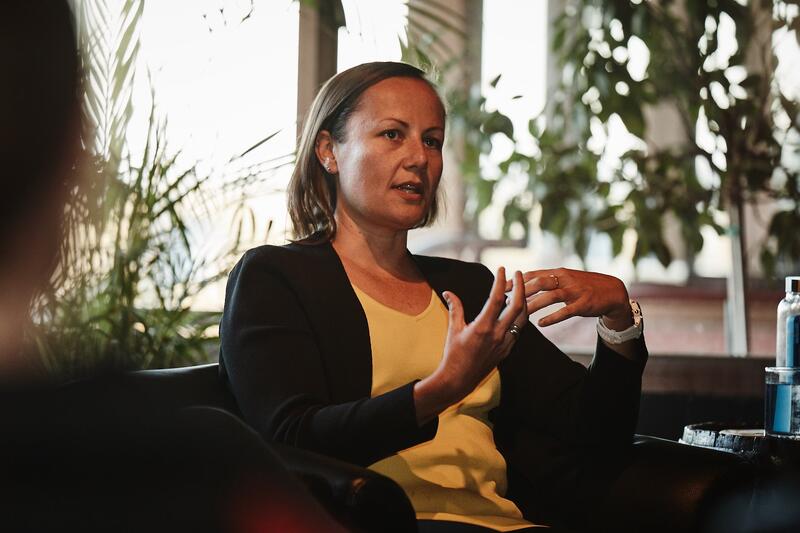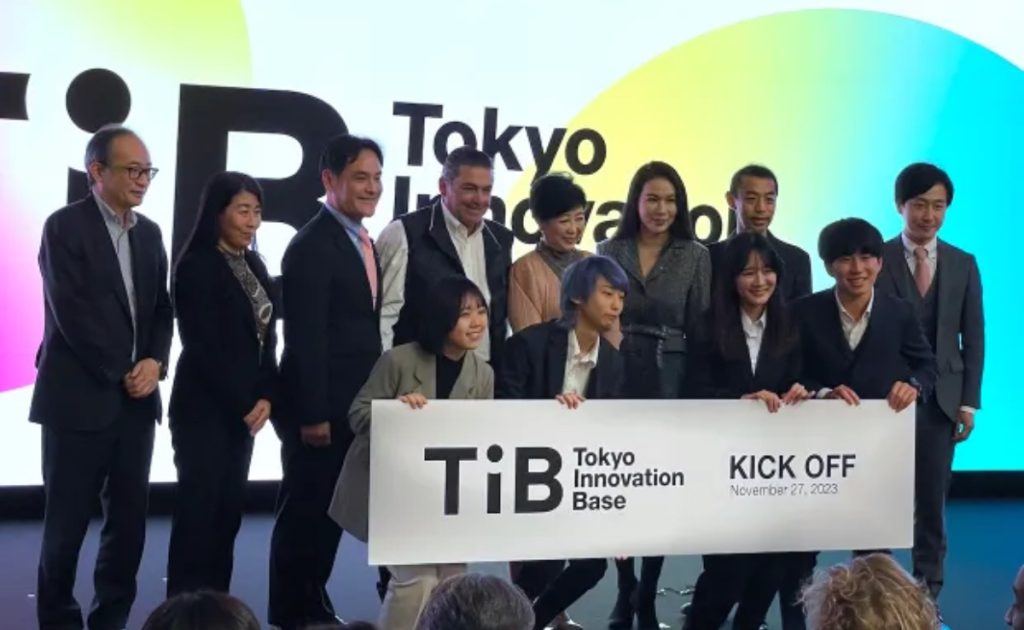More than just a brilliant idea: What does it take for your startup to be the next success story?
At the SusHi Tech Tokyo Global Startup Programme, key figures from the startup world shared how founders can access crucial resources for their businesses to flourish.

There are 150 million startups in the world today.
50 million new startups launch every year, which means that an average of 137,000 startups emerge every day. Yet, only a handful them manage to achieve significant success.
Statistics reveal a daunting reality: nine out of ten startups ultimately fail, and navigating the path to success is far from straightforward in today’s uncertain economic landscape.
To thrive in this challenging environment, startups need more than just a brilliant idea. Capital and investment, the right skills, mentors, and networking opportunities all play a vital role.
One avenue for startups to access these crucial resources is through startup accelerators. It’s within these accelerators that some of the most renowned names in the tech sphere, including Airbnb, Coinbase, and Stripe, found their footing and flourished.
At a panel discussion during the SusHi Tech Tokyo Global Startup Programme on May 16, key figures from the startup world delved into the role of accelerators in driving the success of startups worldwide.
An accelerator is like a “college or university” for startups
The purpose of a startup accelerator is exactly that—to accelerate a startup’s growth. “I view it as a college or university for startups,” said Ravi Belani, the Managing Director and CEO of B2B accelerator Alchemist Accelerator.
“We believe that the next big unicorn is in somebody’s mind right now, and if we can catalyse that into becoming an into an actual venture, then our mission is done.”
 Techstars’ startup community/ Image Credit: Techstars
Techstars’ startup community/ Image Credit: TechstarsAccelerators provide mentor-based programmes that provide intensive guidance, support and structure for a set period of time, typically three months.
Take New York-based Techstars, for instance. The accelerator selects a small cohort of 12 startups for a three-month long bootcamp designed to equip them with the essential skills for building and scaling a company from scratch.
These startups will also have access to Techstars’ global network of mentors, investors, operators, and supporters. “We have 4392 active mentors and so that’s the size of the network that you are joining as a Techstars founder,” said Kristin Hunter, the Managing Director (NSW) of Techstars.
No matter the challenge you face, whether it’s something within your local market, whether it’s something to do with how you expand overseas, or whether it’s a question to do with a challenge within your industry, there will be always be someone within the Techstars network ready to help.
Even if they haven’t been through that specific problem before themselves, they will know somebody who has, so you have the ability to reach out and get support for any problem no matter what it might be.
– Kristin Hunter, Managing Director (NSW), Techstars 500 Global’s Southeast Asian arm/ Image Credit: 500 Global
500 Global’s Southeast Asian arm/ Image Credit: 500 GlobalThe experience, knowledge and expertise that accelerators offer can also truly be a game-changer for startups.
Over the past 14 years, 500 Global has invested in 2900 companies. “This means that we’ve probably seen the type of company you’re building or the type of business model you’re building,” said Saemin Ahn, Partner at 500 Global, Southeast Asia.
The accelerator not only focuses on the early stages of startups but also supports them in the mid to long term, especially once they move past the product-market fit phase.
“We’re able to give startups really verifiable, and quantifiable insights. I focus on the later stages and strive to advise as accurately as possible on what the company should prepare for,” Saemin added.
Should founders give up their equity to join an accelerator?
Getting into a top accelerator often requires giving up equity in your startup, usually between 5 to 8 per cent. In turn, accelerators will provide funding, allowing founders to focus on scaling their companies.
But despite the allure of such opportunities, some founders may harbor reservations about parting with their equity.
 Kristin Hunter, Managing Director (NSW), Techstars/ Image Credit: Techstars
Kristin Hunter, Managing Director (NSW), Techstars/ Image Credit: TechstarsAs part of Techstars’ bootcamp, startups will receive an investment of US$120,000—and for that, Techstars will become a shareholder of their business.
However, Kristen urges founders to shift their perspective regarding this investment. Rather than viewing it solely as the cost of providing equity and compensating the accelerator for its program, she advocates considering the broader benefits it affords.
Having Techstars as a shareholder in your business is almost as if you’re bringing us on as another co-founder in your business. That is a really important thing for us because it means that Techstars is aligned to the success of your business.
It is our responsibility as your investor to do everything we can, even after the three-month bootcamp is over, to help your business be successful.
– Kristin Hunter, Managing Director (NSW), Techstars Ravi Belani, Managing Director and CEO, Alchemist Accelerator/ Image Credit: Startupfest
Ravi Belani, Managing Director and CEO, Alchemist Accelerator/ Image Credit: StartupfestEchoing the same sentiments, Ravi added that founders need to “be satisfied with growing their pie bigger, even though their slice of the pie gets smaller”.
“Your overall wealth increases, versus when you try to have a really big piece of a very small pie. So this mentality shift has to happen,” he said.
But even then, he still encourages founders to seek input from others when receiving funding from an investor to joining an accelerator.
When you’re taking in money from either an investor that’s going to dilute you or an accelerator, talk to the founders that have taken money from that investor or gone through that accelerator. They’ll be honest with you, and they’ll tell you about the value that they’ve received.
– Ravi Belani, Managing Director and CEO, Alchemist AcceleratorHow else can you push your startup to success?
Besides accelerators, startups can also double down on their growth and expansions by leveraging resources from startup ecosystem hubs, where networks of interconnected organisations and entities, such as investors and government organisations, come together to support their growth, development, and success.
 Image Credit: SusHi Tech Tokyo 2024
Image Credit: SusHi Tech Tokyo 2024In a separate panel discussion on May 15, key players from various startup hubs—Singapore’s BLOCK71, Finland’s Maria 01, and France’s STATION F—shared how these hubs can help founders need to flourish in their startup journey.
In Singapore’s BLOCK71, entrepreneurs have access to a comprehensive suite of resources from NUS Enterprise such as dedicated mentorship support, access to funding, exclusive networking opportunities, and assistance to integrate into the local ecosystems seamlessly.
With BLOCK71 as a network of innovation and an entrepreneurial gateway to and from NUS, they can also tap into the university’s technology pool, expertise and business networks to help them create and scale up their ventures.
 STATION F/ Image Credit: STATION F
STATION F/ Image Credit: STATION FApart from BLOCK71, other startup ecosystems, like STATION F and Maria 01, also provide similar resources.
For instance, STATION F, which is also the world’s biggest startup campus, has built an extensive VC network with over 500 investors in the community, allowing startups to easily access funding.
“[Startup ecosystem hubs like STATION F] act as a way to showcase startups to various stakeholders—it’s a way to make them visible,” said Marwan Elfitesse, the Head of Startup Programs and Business services at STATION F.
 Image Credit: Masaru Ikeda
Image Credit: Masaru IkedaMost recently, the Tokyo Metropolitan Government has launched the Tokyo Innovation Base, a centre to facilitate the exchange between entrepreneurs and other stakeholders in the startup landscape.
The space is designed for hosting regular industry events, meetups, and conferences, offering valuable opportunities for startups to connect with investors, and industry experts to propel their growth.
Ultimately, although the journey of launching a startup is fraught with challenges, there are various avenues that founders can leverage to fuel the growth and success of their startups.
Startup ecosystem hubs and accelerators act as vital nurturing grounds that can help transform innovative ideas into viable, scalable businesses, making them indespensible for entrepreneurs aiming to navigate the complex startup landscape and achieve significant success.
Featured Image Credit: Vulcan Post

 Fransebas
Fransebas 
































